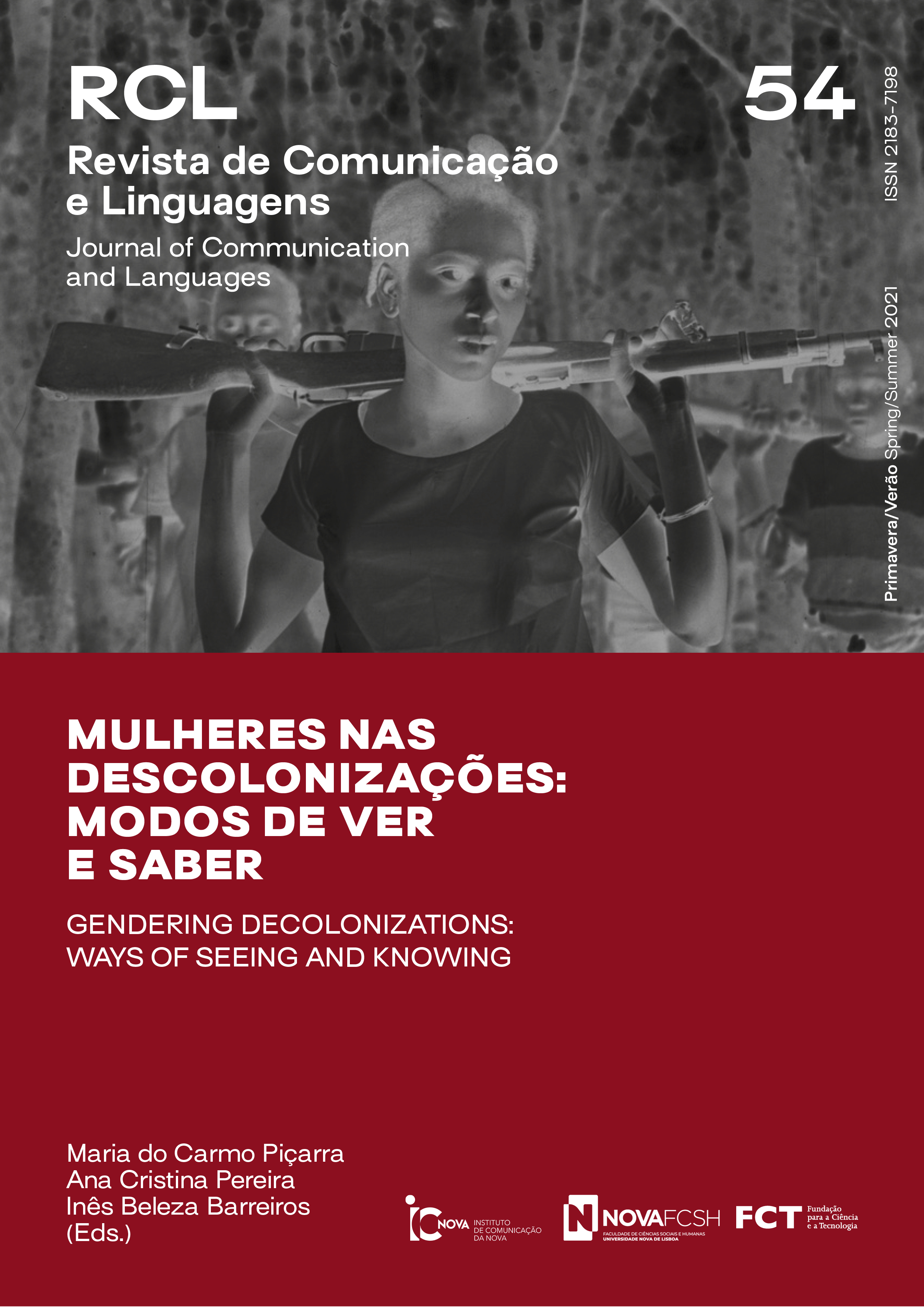Female gaze and subjectivity in The murmuring coast
Resumen
The Murmuring Coast, a film by the Portuguese director Margarida Cardoso, is set in Mozambique, during the colonial war. Adapted from the homonymous novel by Lídia Jorge, the film depicts the life of Evita, who goes to the city of Beira to marry her fiancée, Luís Alex, a soldier fighting in the Portuguese army. However, she will find a different man, changed not only by war, but also by his captain’s misogynistic views. I analyze the (im)possible negotiation and acknowledgement of female subjectivity in a universe ruled by men. Evita detaches herself from that society, obtaining a distanced, and therefore critical view of the war, of politics, and of the community around her. Her gaze is one of the main driving forces of the film, and the camera identifies with it, offering a female point of view to the spectator. Directed by a woman, the film shows us, through Evita’s gaze, a female perspective on desire, subjectivity, history, and violence (not only against women, but against another race, another country and a different worldview).
Keywords
female gaze; The Murmuring Coast; Margarida Cardoso; war and women
Derechos de autor 2021 Revista de Comunicação e Linguagens

Esta obra está bajo licencia internacional Creative Commons Reconocimiento-NoComercial 4.0.


